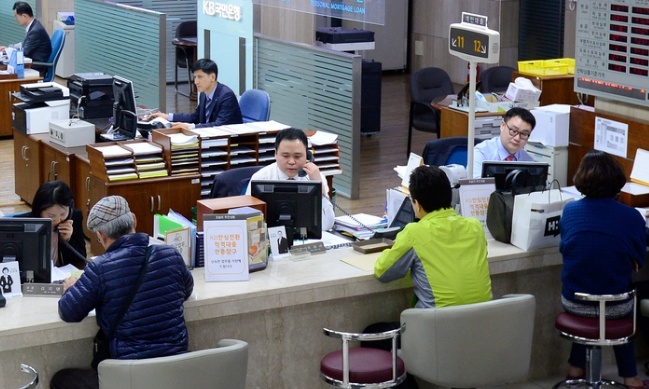Lending rates on fresh bank loans dropped to new lows in August, central bank data showed Thursday, hinting at a further increase in the country's already record-high household borrowing.
The average interest rate on fresh loans extended to households came to 2.92 percent in the month, down 0.20 percentage point from 3.12 percent the previous month, according to the data from the Bank of Korea.
 |
(Yonhap) |
The average rate on fresh corporate loans also dropped by 0.20 percentage point to 3.32 percent over the cited period.
They are the lowest rates since the central bank began compiling related data in 1996.
The drop apparently follows a cut in the central bank's policy rate in July to accommodate Asia's fourth-largest economy, which posted disappointing 1.9 percent on-year growth in the first half, far below the annual growth target of 2.2 percent set by the BOK.
The low interest rate, however, may lead to a further increase in household debt, which came to a record high of 1,556.1 trillion won ($1.3 trillion) as of the end of June.
The pace of increase in household debt has also quickened from 0.3 percent on-quarter growth in the first quarter to 1.1 percent in the April-June period.
The BOK's monetary policy board is widely expected to further slash the rate amid a steady decline in the country's exports. The board's next rate-setting meeting is slated for Oct. 16.
Interest paid by banks on fresh savings also dropped but at a slower pace, dipping to 1.52 percent in August from 1.69 percent the month before.
The gap between the interest charged and paid by banks narrowed to 1.67 percentage points from 1.71 percentage points over the cited period.
With the latest cuts in rates, the average interest rate on all outstanding bank loans dropped to 3.56 percent from 3.63 percent, with that on all outstanding bank deposits slipping to 1.35 percent from 1.39 percent. (Yonhap)








